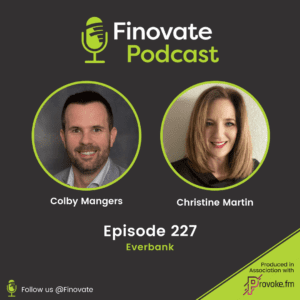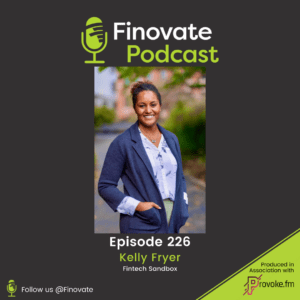
The annual Consumer Electronics Show (CES) took place last week, and U.S. Bank sent its Chief Innovation Officer Don Relyea and Head of Applied Foresights Todder Moning to take a look at the future of innovation across industries. The pair went to explore how emerging trends like AI, automation, and extended reality can enhance the customer experience.
In our interview with Relyea and Moning, the two shared their key takeaways from the event, including insights into the newest AI advancements, the evolution of immersive technologies, and the practical applications they plan to bring back to U.S. Bank.
Did you see any innovations at CES that inspired ideas for how U.S. Bank might improve its customer experience?
Don Relyea: Yes, inspirations for new innovations were everywhere. A few examples across industries: This year, we saw more foreign banks demoing their innovations than we ever have before. Several Asian banks were showcasing AI-powered venture portfolio tools, as well as AI-powered banking applications that are more along the lines of “Do It for Me” opposed to the current digital standard of “Do It Yourself.” This is a trend we follow closely. Samsung’s SmartThings Pro, which extends its smart home technology to business environments, is very interesting for optimizing and personalizing consumers’ retail experiences. When you think about the branch of the future and how branches will evolve, there are interesting things that could be done with a space that is environmentally aware of who and how many people are in it, etc.
Todder Moning: At CES 2025, it was apparent how technology is advancing convenience, safety, and new forms of value across all areas of consumers’ lives. For companies exhibiting in recent years, it’s been about adding sensors to products and connecting them to the cloud via consumers’ WiFi connections. We have also seen how new channels of human computer interaction are making it into the mainstream – from voice interaction to the emergence of new audio/visual interaction with glasses and AR/VR headsets. This year, it was all about taking that data and using AI to make products and services smarter and more capable. And we’re in the very early innings of this trend to help people traverse their worlds with smarter, more ambient, and more ‘auto-magical’ products and services. U.S. Bank has been doing the same thing in connecting customers and their money, payments, and transaction capabilities, embedding them in more areas across their lives and businesses. I think the work we’ve been doing in both embedding and machine learning/AI will be a vector that will expand further based on what we saw at this year’s CES.
How do you think the advancements in AI and automation showcased at CES could influence the future of banking in general?
Relyea: We saw a lot of AI at the show, but many of the things were just companies branding things with AI in the name versus harnessing AI’s full potential. However, we did begin to see clever use cases where companies are leveraging AI for consumer automation with good customer-centered design – once again, “Do It for Me” type use cases. This trend will eventually raise the bar for consumer expectations as consumers become more comfortable ceding control to agentic AI. These are market signals we are keeping an eye on as we prepare for this shift in consumer expectations.
Moning: While AI is not new and has always been at CES, it was overwhelmingly the primary focus this year. It reminded me of a few years back when Alexa voice interaction was put into everything from eyeglasses to grills to pet bowls. However, there were some big announcements and creative uses of AI too. We’re currently seeing AI move from simpler use cases of language and content creation using Large Language Models to the next phase of AI agents using Large Action Models, where chatbots and GPTs will be able to reason more and take permissioned action on your behalf. Instead of just reviewing a PDF for you and helping to craft an email, AI agents will enable digital actions such as making reservations or paying your monthly bills.
What was exciting to me, after years of following IoT and autonomous driving for U.S. Bank, was finally seeing the emergence of tools that will enable what some call physical AI, moving us closer to fully realized autonomous driving, more automated factories and warehouses, and more functional general robotics. Digital twins and Large World Models (mapping physical environments and learning the physics and rules of how to function in those environments) will enable consumers and enterprises to improve their lives and their businesses, respectively. It’s a big opportunity and should create many new kinds of jobs. We believe that banks will need to enable customers and their AI agents with transaction services, payments, lending and investing. This will be a large and exciting trend to explore over the next few years.
Were there any discussions at the conference about the metaverse, AR/VR, and immersive experiences? Do you see a role for these technologies in banking or financial services?
Relyea: The metaverse was somewhat more subdued at CES this year with companies perhaps realizing more fully they are not sure how it will play out. We didn’t see anything groundbreaking in the metaverse space. In fact, we saw several of the same things from last year’s show. That said, the smart glasses space is evolving and miniaturizing at a nice pace. AR glasses are getting more visibly appealing, as well as getting more functionality packed into the smaller form factors, including holographic displays on the lenses. The technology is not ideal yet, but it is getting closer. We believe the metaverse/immersive AR/VR experiences will hit their tipping point when these wearable devices are ubiquitous and always with us – like our phones are today. When this happens, we will be ready with embedded financial services.
Moning: Extended reality, including AR and VR, continues to simmer on the stove, so to speak. CES lets us see how different technologies are developing laterally across dozens of industry sectors and longitudinally over multiple years. It’s clear that AR/VR is improving but still has a way to go before it moves from simple heads-up displays (which can be highly useful for certain use cases, like closed captioning for the hearing impaired) to being a more immersive interaction layer over the world. Some vendors have started creating capabilities for 3D commerce, anticipating those markets as they evolve. We did see a few “metaverse companies,” although they’re not well-known names and will depend on more advancements and partnerships to break through. However, self-driving cars and semi-trucks, autonomous agricultural vehicles, and autonomous construction/mining vehicles are using 4D sensors (the fourth D is velocity) and digital twins in their own metaphorical version of a metaverse to bring us closer to the fully realized self-driving future we’ve all been waiting for.
NVIDIA’s announcements were of particular note, with its Blueprint agentic AI platform, AI-embedded computer, and Omniverse and physical AI platform that enable AI training for vehicles, factories, robotics, and more for the real world. So, the metaverse, which many think of as only a “virtual world,” is likely to be more of a merging between the virtual and real world. As you can imagine, the way U.S. Bank currently enables both physical and digital economies will be prevalent in such a future as it emerges.
What insights or lessons from CES do you plan to bring back to U.S. Bank’s innovation strategy?
Relyea: Companies that are more mature in their customer experience practices displayed solutions that are ambient, predictive, adaptive, and accessible. Much of this is powered by AI, either traditional or agentic. This was the year of agentic AI, and we think it will begin to usher in the age of “Do It with Me” and “Do It for Me” style experiences. From a customer experience perspective, the team will be focused on defining the art of possible in these spaces.
Moning: Seeing the AI announcements and AI-embedded products and services in so many was impactful to me. The same way that we’ve been testing to safely use traditional and generative AI in the enterprise, consumers will be using AI bots and soon more functional AI agents in their own lives. I believe the way people now manage a constellation of connected devices in their life, they’ll soon have a constellation of AI agents helping them manage the many things they do – from getting dressed in the morning to managing their active busy families to getting life-enhancing medical care to being fully-engaged employers and employees, and, of course, managing their financial lives.
We already have a multi-language capable virtual assistant in our mobile app, so how do we safely plug the value and service U.S. Bank provides to help our customers in other ways? How do we provide it when interacting with their AI agents? If there are eight billion people, of which let’s say one billion or so are active working professionals, that means that there will be many billions of AI agents those folks will be using and with which companies will be interacting. That feels like a pretty big opportunity.

What was the coolest non-fintech technology or tool that you saw there?

Relyea: Small personal aircrafts are getting really cool – think big drones with cockpits. We also saw many autonomous robots for vacuuming, mowing, cleaning pools, and a ton of other uses. I was able to shake hands with a robot for the first time at this CES, which was pretty cool but also a little terrifying when you think about it.
Moning: After petting and high-fiving a robotic dog last year, I shook hands with my first humanoid robot this year. It was a kind of “first contact” with the robotic future. But what I found most thrilling was being able to dig in Arizona using a large Cat Excavator I was operating remotely from the CES floor in Las Vegas. It was like being a drone pilot but for construction/mining equipment. This kind of remote control is the important “human-in-the-middle” stage between no autonomy and fully autonomous vehicles.



























